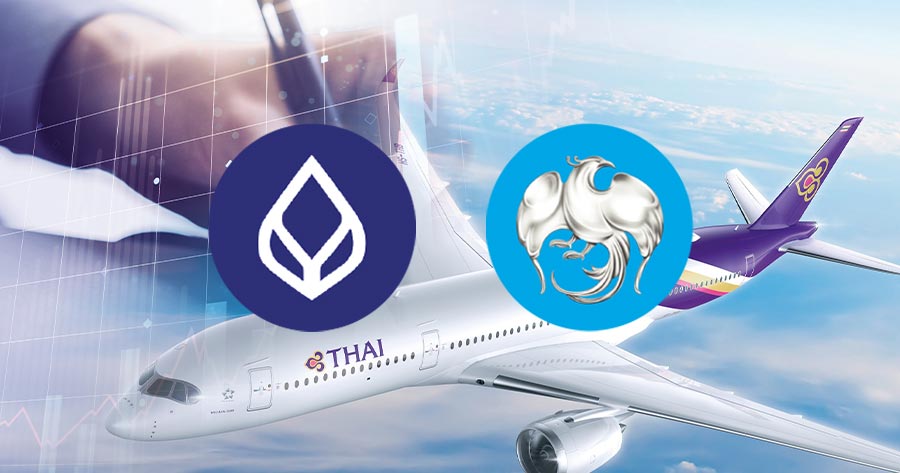CGS International Securities (Thailand) (CGSI) expected two commercial banks in Thailand to benefit from Thai Airways exiting rehabilitation plan, which would convert the current non-performing loans to performing loans, significantly decreasing NPL ratios.
Thai Airways has announced a capital restructuring initiative set for the fourth quarter of 2024 as part of its ongoing business rehabilitation plan, mandated by the Central Bankruptcy Court. This restructuring will involve the issuance of approximately 9.8 billion new shares at a minimum price of THB 2.5452 each to facilitate a debt-to-equity conversion with creditors. Additionally, there will be a private placement share offering targeted at existing shareholders, employees, and specific investors.
In an effort to eradicate accumulated losses, the airline will also reduce its par value. These efforts are projected to bring Thai Airways’ shareholder equity back into positive territory by February 2025, with subsequent preparation for exiting the rehabilitation plan. The company aims to have the Central Bankruptcy Court’s approval for this exit by May 2025 and expects that its shares will be trading again by the end of June 2025.
In the context of Thai Airways’ ongoing rehabilitation, CGSI noted that Bangkok Bank (SET: BBL) and Krung Thai Bank (SET: KTB) have significant loan exposures to the airline, amounting to THB 11.9 billion and THB 5.8 billion respectively. As of the second quarter of 2024, BBL held a 0.4% share in Thai Airways, which is expected to increase to 5.8% following a debt-to-equity conversion.
Keynote is that both BBL and KTB have reportedly classified their loans to Thai Airways as non-performing loans (NPLs) since the airline filed for bankruptcy in 2020. With Thai Airways’ anticipated exit from rehabilitation, it is expected that these banks will reclassify these loans as performing loans or Stage 1 by the fourth quarter of 2025. This upgrade is contingent upon Thai Airways maintaining consistent debt repayment over five consecutive years from 2020 to 2024.
CGSI anticipates improvements in the NPL ratios and coverage for BBL and KTB following the upgrade of Thai Airways’ loans to performing status. Specifically, BBL’s NPL ratio is expected to decline from 3.64% in the second quarter of 2024 to 3.18%, with its NPL coverage ratio projected to increase from 283% to 321%. For KTB, the NPL ratio is forecasted to decrease from 3.85% in the second quarter of 2024 to 3.59%, and its NPL coverage ratio is expected to rise from 181% to 192%.
Still, CGSI does not anticipate that the banks will reverse their provisions or expected credit loss (ECL). Instead, it is expected that these provisions will be reallocated to management overlay or general provisions.
CGSI maintains a Neutral rating on the banking sector, citing a lack of strong catalysts and comparatively low Return on Equity (ROE) estimates ranging from 8.7-8.8% for the fiscal years 2024 through 2026. This is in contrast to the average ROE of 11.2-12.9% for ASEAN banks covered by CGSI.
The preference leans towards banks focused on corporate lending over those primarily involved in consumer lending. Potential upside risks that could positively affect the sector include stronger private consumption, improved export growth, and effective stimulus policies from the new government. Conversely, downside risks include further deterioration in asset quality and potential delays in the implementation of new economic stimulus policies.
Additionally, CGSI recommended ‘Add’ Bangkok Bank with a target price of THB195 per share, representing a 25% upside from the closing price on 11 October 2024. Meanwhile, the firm gave a ‘Hold’ recommendation on Krungthai Bank with a target price at THB20.90 per share, representing a downside of 3%.
Under the assumption of a new shareholder structure of Thai Airways following the capital restructuring in the fourth quarter of 2024, which includes a debt-to-equity conversion. Here is a breakdown of the share distribution from CGSI:
1) Ministry of Finance: 32.9%.
2) Creditors in the rehabilitation plan: 38.4%
3) Existing shareholders, THAI employees and new shareholders: 12.4%.
4) Bangkok Bank: 5.8% After the debt-to-equity conversion.
5) Other state enterprises: 5.0%.
6) The Vayupak Fund: 2.7%.
7) Other existing shareholders: Retain a small portion of 2.6%.





